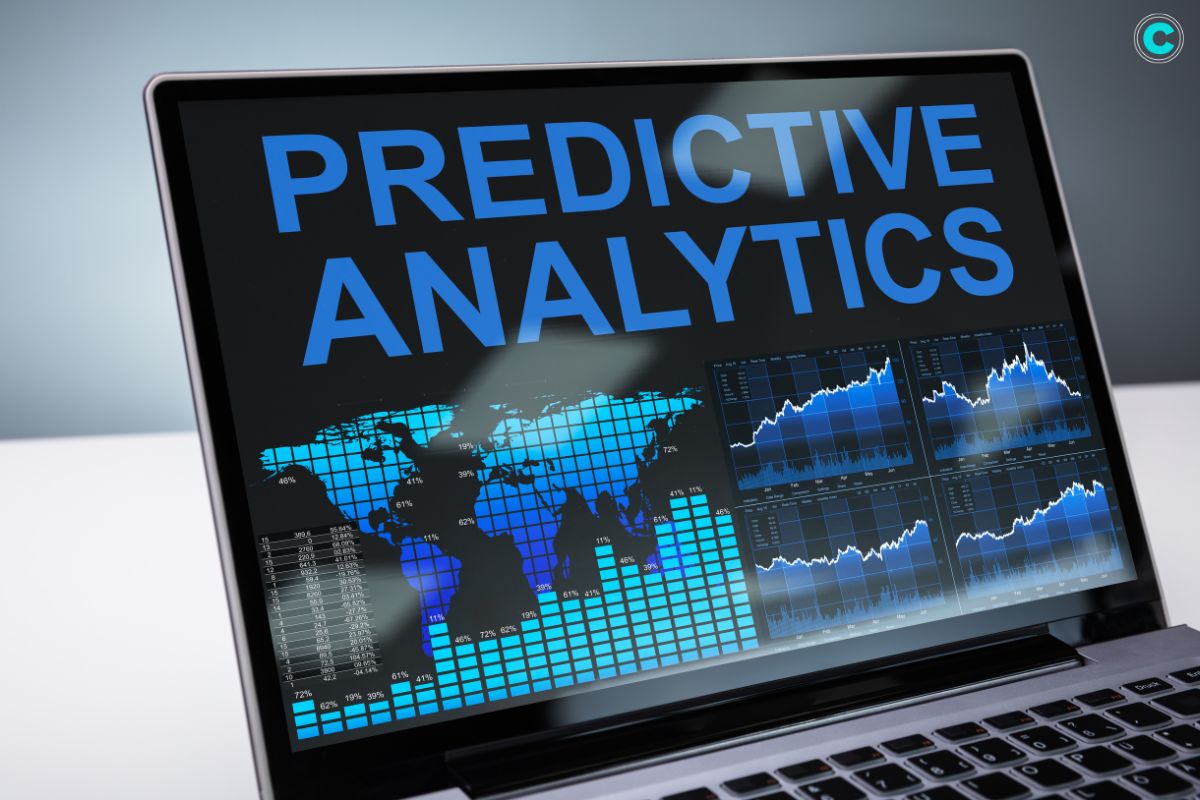Stock Market Prediction With Machine Learning: Uncovering the Future of Investments

Imagine being able to predict the stock market’s future with remarkable accuracy. It’s like having a crystal ball for your investments. This isn’t science fiction; it’s the power of machine learning (ML) applied to stock market prediction. But how exactly does it work? Can it really help investors make better decisions? In this article, we’ll explore these questions and delve into the fascinating world of Stock Market Prediction using machine learning.
What is Machine Learning?
Machine learning is a subset of artificial intelligence (AI) where computers are trained to learn from data. Think of it as teaching a dog new tricks. The more you train it, the better it gets. In ML, algorithms are fed vast amounts of data, and through this, they identify patterns and make predictions. Unlike traditional programming, where the computer follows explicit instructions, ML allows the computer to learn and adapt on its own.
How Does Machine Learning Apply to Stock Market Prediction?
Predicting the stock market is like predicting the weather—complex and influenced by many factors. However, machine learning can sift through enormous datasets, identify patterns, and forecast future stock prices with impressive accuracy. By analyzing historical data and identifying trends, ML models can predict future movements in the stock market. This gives investors an edge, helping them make more informed decisions.
Types of Machine Learning Models Used in Stock Market Prediction
Several types of ML models are used to predict stock prices. Here are a few of the most common:
Supervised Learning
In supervised learning, the model is trained on a labeled dataset, meaning the data includes both input variables and the corresponding output. This model can then predict the output for new, unseen data.
Unsupervised Learning
Unsupervised learning works with unlabeled data. The model identifies patterns and relationships within the data without prior knowledge of the outcomes. This method is often used for clustering stocks with similar behaviors.
Reinforcement Learning
Reinforcement learning involves training models through trial and error, using feedback from their actions to improve over time. This is akin to how a game player learns from mistakes to improve their performance.
Data Sources for Stock Market Prediction
Quality data is the backbone of effective prediction of the stock market. Here are some key sources:
Historical Stock Prices
Historical prices provide a record of past performance, crucial for identifying trends and patterns.
Financial Reports

Economic Indicators
Data like GDP growth, unemployment rates, and interest rates affect market conditions and stock performance.
News and Social Media
Market sentiment often shifts based on news and social media trends. Analyzing this data can provide additional predictive power.
Key Techniques in Machine Learning for Stock Prediction
Several ML techniques are particularly effective in predicting stock prices:
Regression Analysis
Regression models predict a continuous output variable based on one or more input variables. They are commonly used to predict stock prices.
Time Series Analysis
This technique analyzes time-ordered data points to identify patterns and make future predictions. It’s particularly useful for stock market forecasting.
Natural Language Processing (NLP)
NLP allows ML models to analyze textual data, such as news articles and social media posts, to gauge market sentiment.
Neural Networks
Neural networks mimic the human brain’s structure and are excellent at identifying complex patterns in large datasets. They are widely used in stock market prediction.
Challenges in Predicting the Stock Market
Despite its potential, using ML for stock market prediction comes with challenges:
Data Quality and Availability
High-quality, relevant data is essential for accurate predictions. Incomplete or biased data can lead to inaccurate models.
Market Volatility
The stock market is inherently volatile and influenced by countless unpredictable factors, making precise predictions difficult.
Overfitting
Models that perform exceptionally well on training data but poorly on new data are overfitted. This is a common problem in ML.
Ethical and Legal Concerns
The use of ML in stock trading raises ethical questions and potential legal issues, such as market manipulation.
Case Studies: Machine Learning in Action

Case Study 1: JPMorgan Chase
JPMorgan Chase uses ML to analyze vast amounts of trading data, helping them make more informed investment decisions. Their proprietary AI platform, LOXM, optimizes trading strategies to achieve better market results.
Case Study 2: BlackRock
BlackRock, the world’s largest asset manager, employs ML to analyze market trends and optimize their investment portfolios. Their AI platform, Aladdin, processes millions of trades daily, enhancing decision-making processes.
Case Study 3: Renaissance Technologies
Renaissance Technologies, a hedge fund, is known for its heavy reliance on ML and quantitative models. Their Medallion Fund has consistently outperformed the market by leveraging sophisticated algorithms and vast datasets.
The Role of Big Data in Stock Market Prediction
Big data plays a crucial role in enhancing the accuracy of stock market predictions. By processing and analyzing enormous datasets, ML models can uncover hidden patterns and trends that would be impossible for humans to detect.
Enhanced Predictive Power
Big data allows ML models to consider a broader range of factors, improving their predictive power.
Real-Time Analysis
With big data, ML models can process information in real-time, enabling investors to react swiftly to market changes.
Sentiment Analysis
Analyzing social media and news in real-time provides insights into market sentiment, influencing stock predictions.
Ethical Considerations
Using ML for stock market prediction isn’t without ethical concerns. These include:
Market Manipulation

Transparency
ML models are often considered “black boxes” due to their complexity, making it hard to understand how they make decisions.
Job Displacement
The rise of ML in finance could lead to job displacement for traditional analysts and traders.
The Future of Stock Market Prediction
The future lies in the continuous advancement of ML and AI technologies. Here are some potential developments:
Integration with Blockchain
Combining ML with blockchain technology could enhance data security and transparency in trading.
Personalized Investment Strategies
ML could enable highly personalized investment strategies tailored to individual risk profiles and preferences.
Improved Predictive Accuracy
As ML algorithms become more sophisticated, their predictive accuracy is expected to improve, offering even greater insights into market movements.
FAQs
1. Can machine learning guarantee accurate stock market predictions?
No, machine learning cannot guarantee accurate predictions due to the inherent volatility and unpredictability of the stock market. However, it can significantly improve the accuracy of forecasts.
2. What types of data are crucial for machine learning in stock market prediction?
Key data types include historical stock prices, financial reports, economic indicators, and news and social media trends.
3. How do machine learning models handle market volatility?
ML models use vast datasets and advanced algorithms to identify patterns and make predictions, but they still face challenges due to the market’s unpredictable nature.
4. Are there ethical concerns with using machine learning for stock market prediction?
Yes, ethical concerns include market manipulation, lack of transparency in ML models, and potential job displacement in the finance sector.
5. What is the future of stock market prediction with machine learning?
The future holds the potential for enhanced predictive accuracy, integration with blockchain technology, and highly personalized investment strategies tailored to individual investors.
Conclusion
Machine learning is revolutionizing stock market prediction, offering unprecedented insights and accuracy. While challenges remain, the potential benefits for investors are immense. As technology continues to advance, the future looks brighter than ever.